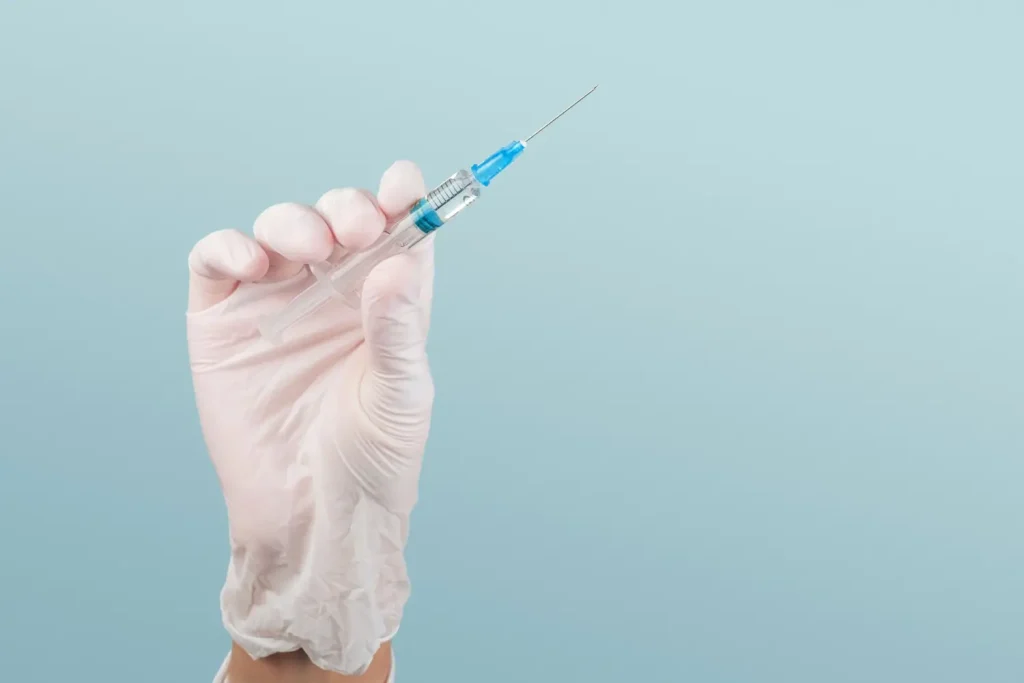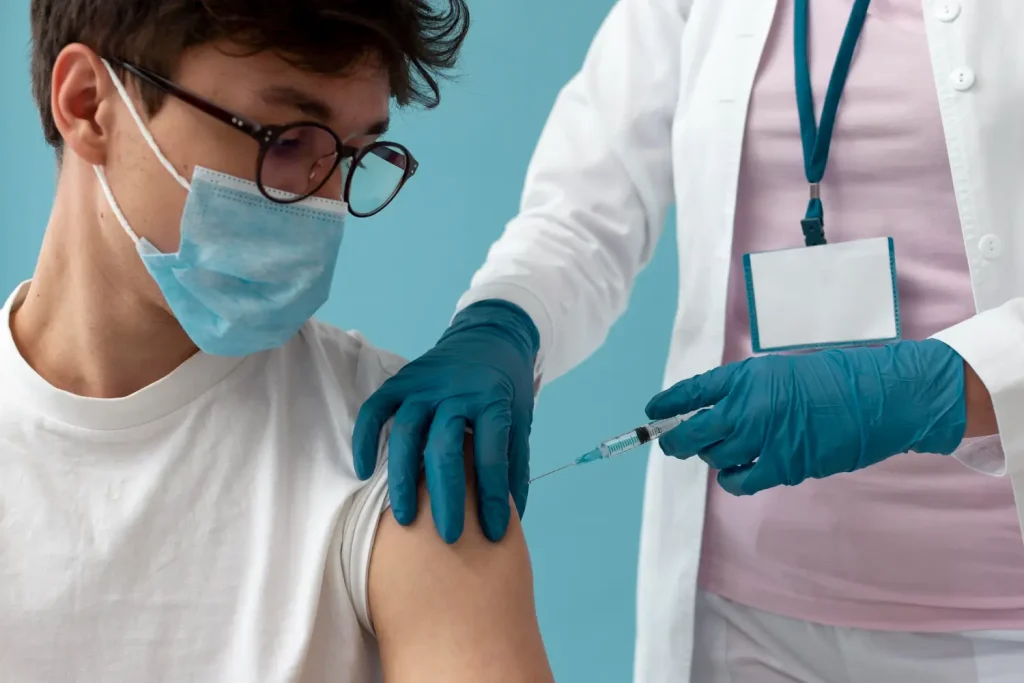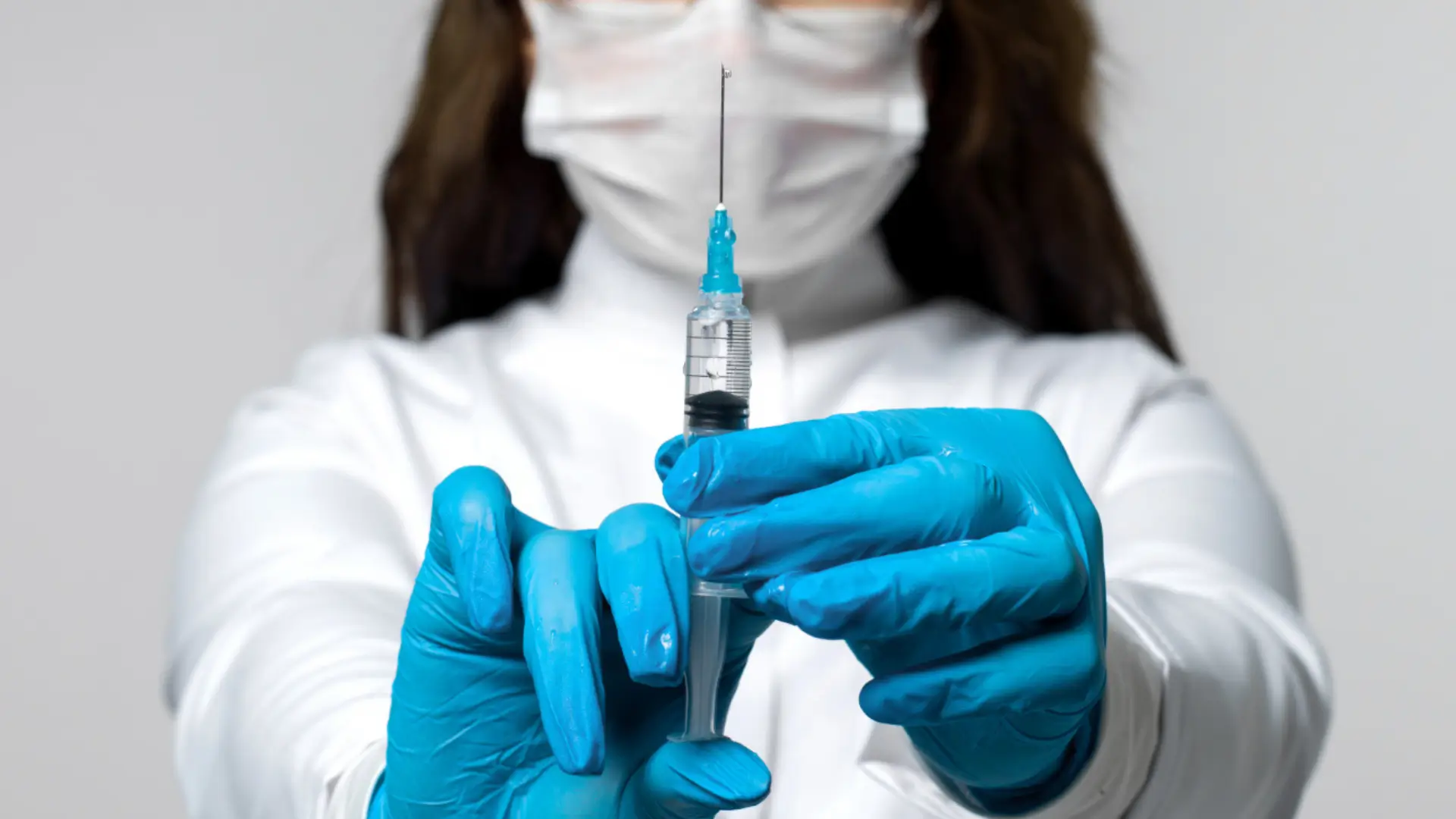Approximately 25% of contraceptive use worldwide involves male-directed methods such as condoms, withdrawal, and sterilization. This growing participation highlights the evolving role of men in family planning and the pressing need for broader contraceptive choices that support shared reproductive responsibility.
Depo Provera, widely recognized as a female injectable contraceptive, has drawn attention for its potential use in men. Clinical studies have explored its role in lowering testosterone levels and managing certain behaviors, opening new possibilities for male contraception and hormonal regulation.
In this article, we explore the clinical applications of Depo Provera for men, shedding light on its potential benefits, medical uses, limitations, and what the future might hold in the evolving landscape of male contraceptives.
Key Takeaways
- Depo Provera, primarily known as a contraceptive for women, is being explored for its potential off-label uses in men, particularly for managing hormone-sensitive conditions and behaviors.
- By lowering testosterone levels, Depo Provera can effectively treat paraphilias and hypersexuality and help manage the progression of hormone-sensitive cancers like prostate cancer.
- The treatment’s efficacy in men highlights the necessity for careful monitoring, as there are limited clinical studies and potential side effects, including weight gain and mood alterations.
- Ethical considerations and informed consent are crucial when discussing the use of Depo Provera in male patients, emphasizing the importance of thorough consultations with healthcare professionals.
About: Medica Depot is your trusted all-in-one supplier, offering a range of high-quality medical injectables and supplies. Buy Depo Provera online at Medica Depot today! Whether for health professionals, plastic surgeons, dermatologists, licensed estheticians, or other specialists, we can offer genuine, brand-name products you may need. With Medica Depot, we prioritize serving you better to improve the patient’s quality of life.
Current Clinical Applications in Men

Depo Provera’s generic name, medroxyprogesterone acetate, is an injectable medication with specific clinical applications. Although it is primarily approved by the U.S. Food and Drug Administration (FDA) as a contraceptive for women, its off-label uses in men have shown potential in managing certain medical conditions.
These applications are supported by clinical observations and are used within regulatory boundaries to ensure safety and effectiveness. While the FDA’s approval applies to women, the off-label use of Depo Provera for men typically focuses on hormone-sensitive disorders and behavioral health management.
- Managing Paraphilias and Hypersexuality: Depo Provera lowers testosterone levels, helping suppress sexual urges and behaviors. It is considered effective in treating paraphilic disorders and hypersexuality, especially when combined with psychotherapy.
- Treating Hormone-Sensitive Cancers: Depo Provera inhibits androgen activity, helping slow the progression of conditions like prostate cancer, particularly in advanced or metastatic cases when used alongside other therapies.
Mechanism of Action in Male Patients
A thorough consultation with licensed medical professionals helps male patients understand the potential benefits of Depo Provera. Gaining insight into its mechanism of action allows for a clearer comparison to its use in hormonal therapy for women.
- Inhibiting Gonadotropin Secretion: Depo Provera suppresses the release of gonadotropins from the pituitary gland, reducing the stimulation required for testosterone production in the testes.
- Lowering Testosterone Levels: By significantly decreasing testosterone, Depo Provera for men can reduce sexual drive and compulsive behaviors, making it effective in treating hypersexuality and hormone-sensitive disorders. Regular monitoring ensures that the treatment remains safe and beneficial.
Efficacy and Outcomes

Since its use in men is off-label, there are limited but meaningful clinical studies evaluating its therapeutic potential. These studies emphasize the importance of monitoring and patient selection.
- A case report involving an oral form of medroxyprogesterone acetate showed potential for treating elderly men with dementia who were experiencing inappropriate hypersexuality. Doses ranging from 100 to 400 mg daily appeared to be effective and well-tolerated.
- Another report highlighted how medroxyprogesterone acetate (MPA) could reduce serum testosterone levels and suppress sex-offending behavior. While not successful in all cases, MPA proved valuable in reducing recidivism when used in well-informed, carefully selected patients under supervision.
Potential Side Effects and Management
Although effective, Depo Provera may cause side effects that require proactive medical supervision and patient education.
- Weight Gain: Some users may have first-hand experiences with Depo Provera and weight gain. Managing this side effect involves promoting a balanced diet and regular physical activity.
- Bone Mineral Density Reduction: Long-term use can lower bone mineral density, increasing the risk of fractures. Patients should receive calcium and vitamin D supplementation and engage in weight-bearing exercises.
- Mood Alterations: Mood swings or depressive symptoms have been reported. Regular mental health evaluations and access to support services are essential in these cases.
Ethical Considerations and Future Research

Ethical care includes more than just clinical effectiveness. Healthcare providers must emphasize informed consent, minimize stigma, and stay informed on emerging research to ensure that male patients receive safe and respectful treatment.
- Informed Consent and Autonomy: Clearly explaining the risks, benefits, and alternatives empowers patients to make their own decisions.
- Stigma and Psychological Impact: Hormonal treatments in men can carry emotional and social stigma. Counseling and support help normalize treatment and reduce psychological burden.
Future research should emphasize safety, efficacy, and innovative therapeutic applications of Depo Provera for male patients. Continued clinical trials are essential to expand treatment options and explore unmet medical needs, especially in areas like hormone-sensitive disorders, sexual behavior management, and oncology.
Conclusion
Depo Provera’s potential uses in men extend well beyond its traditional role as a female contraceptive. Its ability to lower testosterone levels makes it an important tool in treating hypersexuality, paraphilic disorders, and hormone-sensitive cancers.
However, its off-label nature calls for careful monitoring, ethical oversight, and ongoing research to assess long-term safety and efficacy. With informed consent, thoughtful application, and personalized care, Depo Provera for men presents a valuable clinical option within the broader scope of reproductive and behavioral health management.
FAQs
1. What does Depo Provera do for men?
Depo Provera for men may manage conditions like hypersexuality and hormone-sensitive cancers, specifically by lowering testosterone levels.
2. Are there any side effects when men use Depo Provera?
Yes, potential side effects can include weight gain, mood alterations, and reduced bone mineral density, which require monitoring and management.
3. Why is it vital to have informed consent when using Depo Provera in men?
Informed consent ensures that patients understand the benefits and risks of the treatment, promoting shared responsibility and better decision-making in their healthcare.
References
- Ross, J., & Hardee, K. (2017). USE OF MALE METHODS OF CONTRACEPTION WORLDWIDE. Journal of Biosocial Science, 49(5), 648–663. https://doi.org/10.1017/S0021932016000560
- Cross, B. S., DeYoung, G. R., & Furmaga, K. M. (2013). High-dose oral medroxyprogesterone for inappropriate hypersexuality in elderly men with dementia: a case series. The Annals of pharmacotherapy, 47(1), e1. https://doi.org/10.1345/aph.1R533









